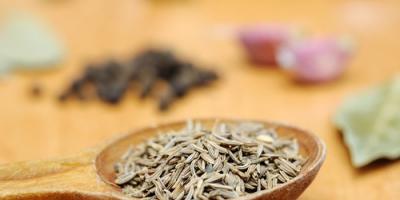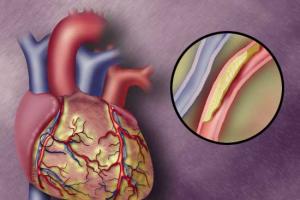Taganskaya 109147 Russia, Moscow +7 495 328 29 17
The TSH hormone is the main player of the thyroid gland
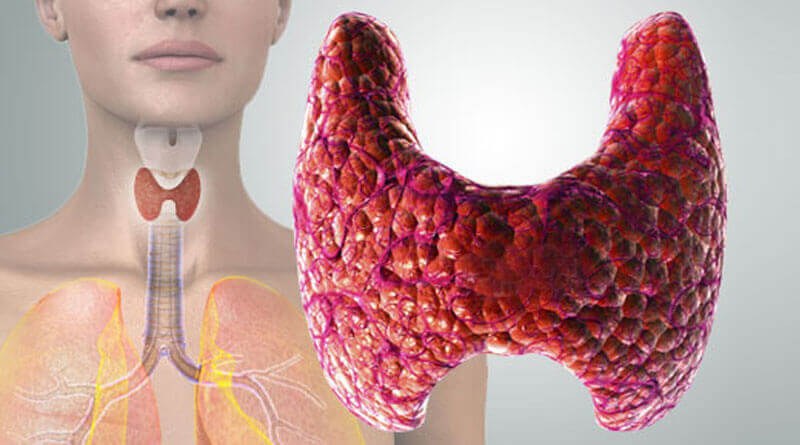 Thyroid-stimulating hormone (thyrotropin) is an essential element of neurohumoral regulation of the activity of the thyroid gland and metabolism in the body. In medicine and analysis, the abbreviation TSH is often used. The hormone is produced by the pituitary gland. Its work is controlled by the hypothalamus. Regulation is carried out by means of negative feedback, i.e. The hypothalamus analyzes the level of the hormones triiodothyronine (T 3) and thyroxine (T 4) in the blood and sends signals to the pituitary gland.
Thyroid-stimulating hormone (thyrotropin) is an essential element of neurohumoral regulation of the activity of the thyroid gland and metabolism in the body. In medicine and analysis, the abbreviation TSH is often used. The hormone is produced by the pituitary gland. Its work is controlled by the hypothalamus. Regulation is carried out by means of negative feedback, i.e. The hypothalamus analyzes the level of the hormones triiodothyronine (T 3) and thyroxine (T 4) in the blood and sends signals to the pituitary gland.
TSH level above normal
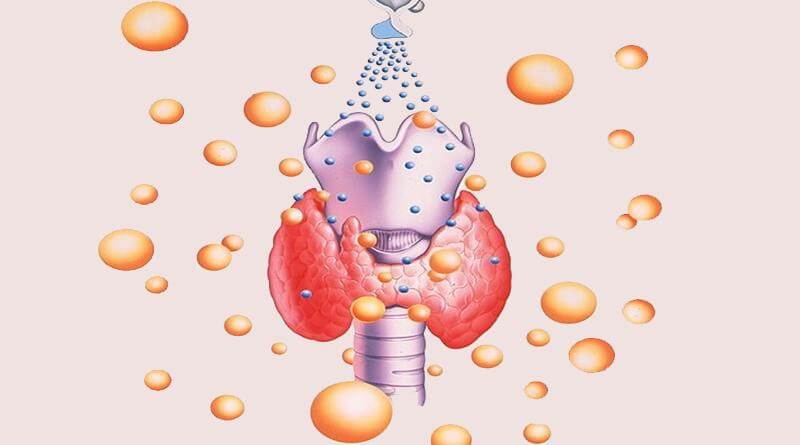 If the analysis reveals a high level of thyroid-stimulating hormone, this indicates pathologies. An increase in the hormone content can be the first indicator of a decrease in thyroid function, even with euthyroidism (normal thyroxine levels). Also, a high rate of TSH is diagnosed in diseases of the adrenal glands, tumors of various genesis, including tumors of the thyroid gland and pituitary gland, with gestosis, with heavy metal intoxication. Medical procedures such as gallbladder removal, thyroid surgery, or hemodialysis can cause a temporary increase in TSH. The numbers increase with diagnoses such as autoimmune diseases (Graves' disease, autoimmune thyroiditis), endemic goiter, etc.
If the analysis reveals a high level of thyroid-stimulating hormone, this indicates pathologies. An increase in the hormone content can be the first indicator of a decrease in thyroid function, even with euthyroidism (normal thyroxine levels). Also, a high rate of TSH is diagnosed in diseases of the adrenal glands, tumors of various genesis, including tumors of the thyroid gland and pituitary gland, with gestosis, with heavy metal intoxication. Medical procedures such as gallbladder removal, thyroid surgery, or hemodialysis can cause a temporary increase in TSH. The numbers increase with diagnoses such as autoimmune diseases (Graves' disease, autoimmune thyroiditis), endemic goiter, etc.
In addition, the problem may lie in diseases of the pituitary gland itself and in the primary violation of the synthesis of thyroid-stimulating hormone: pituitary adenoma, syndrome of irregular hormone synthesis. Taking hormonal drugs, excessive physical activity or the patient's immunity to thyroid hormones also cause an increase in the hormone. Perhaps a slight increase in the content of TSH during pregnancy, which is within the normal range.
It is worth dwelling in more detail on the problem of increasing TSH caused by autoimmune processes. TSH receptors are located in the membranes of follicular cells, these are structures to which hormone molecules are attached. Receptors transport hormones across the membrane.
In autoimmune processes, such as Graves' disease or Hashimoto's thyroiditis, autoantibodies are secreted by lymphocytes, which are aggressive towards the cells of their own body. In this case, the problem is related to antibodies to TSH receptors (AT K R TSH). Antibodies either replace TSH in receptors, or block the receptor's susceptibility to TSH, or block the response of the thyroid gland to TSH. Thus, the organ does not respond to the stimulating effect of TSH and its functions fade. To determine the antibodies, the specialist prescribes a blood test.
Symptoms
Usually, the symptoms of a high level of thyroid-stimulating hormone are not directly related to its functions. Symptoms are the result of abnormal thyroid hormones. Doctors observe the following symptoms in a patient:
- a state of general weakness;
- feeling of chilliness;
- decrease in intellectual activity;
- depressive states;
- insomnia;
- swelling of the face and limbs;
- hypothermia;
- indigestion, loss of appetite;
- deterioration of the skin, nails and hair;
- obesity;
- bradycardia;
- hypotension;
- anemia;
- hearing loss;
- difficult nasal breathing;
- dyspnea;
- menstrual irregularities;
- goiter formation.
The last symptom is associated with the direct effect of thyroid-stimulating hormone on follicular cells. As you can see, the signs are similar to those of hypothyroidism.
Treatment
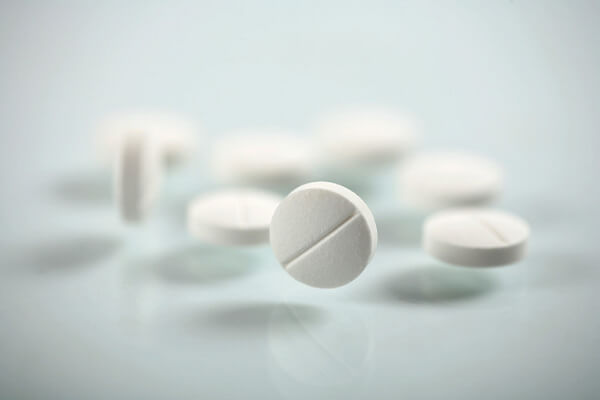 With an overestimated content of TSH in the blood due to low secretory activity of the thyroid gland, the treatment is focused on increasing the level of thyroxine in the body. The doctor prescribes to the patient a course of treatment with synthetic L-thyroxine. The doctor selects the medicine and dosage individually. Treatment begins with small doses, gradually the dose of the drug is increased. During therapy, TSH and T4 levels are periodically monitored.
With an overestimated content of TSH in the blood due to low secretory activity of the thyroid gland, the treatment is focused on increasing the level of thyroxine in the body. The doctor prescribes to the patient a course of treatment with synthetic L-thyroxine. The doctor selects the medicine and dosage individually. Treatment begins with small doses, gradually the dose of the drug is increased. During therapy, TSH and T4 levels are periodically monitored.
Previously, hypothyroidism was treated with products prepared on the basis of the dried and ground animal thyroid gland. The animal gland drug contains iodine, a crystallized colloid of the follicles. If the increase in the amount of TSH in the blood is caused by other pathologies, then treatment, in addition to hormone replacement therapy, includes a set of measures aimed at eliminating the primary causes.
TSH level below normal
If the analysis reveals a low hormone level, this indicates various diseases, often associated with hyperthyroidism. Such pathologies include benign tumors (Plummer's disease) and thyroid cancer, toxic goiter, nodular goiter, the initial stage of thyroiditis, etc. A low level of TSH in the blood causes diseases of the pituitary gland, its insufficient secretory function or postpartum pituitary infarction (Sheehan's syndrome), trauma. A decrease in the content of TSH occurs with the abuse of drugs of the hormone L-thyroxine, with stress, prolonged fasting, with some mental disorders, with acute beriberi.
Symptoms
- tachycardia, arrhythmia;
- hypertension;
- violation of the menstrual cycle;
- tremor;
- irritability, aggressiveness;
- hyperthermia;
- weight loss with good appetite;
- sweating;
- deterioration of the skin, hair and nails;
- diarrhea;
- exophthalmos (protrusion of the eyeball).
Treatment
There are more problems associated with treating low TSH levels. It all depends on the cause of the condition. If the reason for the decrease in the amount of TSH in the blood is caused by thyroid pathologies and thyrotoxicosis, then therapy is prescribed aimed at normalizing the state of the organ and stabilizing the hormonal background. The formation of tumors and nodes often becomes an indication for surgical intervention. Diseases of the pituitary gland require a special approach and treatment under the strict supervision of specialists.
TSH during pregnancy
Hormone levels in women during pregnancy differ and depend on the period. Experts explain this by the fact that the endocrine system begins to develop in the fetus, but there is still no independent control over its activity. The regulation and development of the endocrine system in the fetus occurs under the influence of maternal hormones.
Thyrotropin norm during pregnancy (Table 1)
Deviation of indicators from the norm indicates various diseases of the mother's body, and require immediate medical intervention and diagnostics, because. this can lead to adverse consequences for the child.
Normal hormonal balance and normal antibody levels during the gestation period are extremely important for the full intrauterine development of the fetus. Particularly careful monitoring of hormone levels is carried out in women with thyroid pathologies, hormonal imbalances, autoimmune diseases, as well as in those who are on hormone replacement therapy. Doctors recommend that they regularly donate blood for analysis.
Folk methods of treatment
 To lower the level of TSH, the following fees are recommended:
To lower the level of TSH, the following fees are recommended:
- Birch leaves, yarrow grass, celandine, coltsfoot, licorice and angelica root, rose hips.
- St. John's wort, rowan berries, elecampane root, birch buds.
- Yarrow and chicory herb, rosehip berries, mordovnik root, chamomile flowers.
Herbal tea is prepared from the listed fees. The recipe for the preparation of the medicinal composition is the same for each herbal collection. Raw materials are mixed in equal parts. For a daily portion of herbal tea, take 2 tbsp. any herbal mixture, pour boiling water, cover with a lid and insist on a water bath for 10 - 15 minutes. Then remove from heat and pour the tea into a thermos. Take ½ cup half an hour before meals. The course of taking one collection lasts 3 months, then the collection is changed.
To increase the level of TSH, rowan berries grated with sugar are used. The mixture is taken in 2 - 3 tsp. on an empty stomach The course of treatment is 1 month.
Important! Serious disorders such as hormonal imbalance must be treated under the close supervision of a physician. Folk recipes and alternative medicine methods can only be used as concomitant remedies and with the permission of a doctor.
The thyroid gland and the systems associated with it are very sensitive to deviations in the external environment, so it is important to undergo regular examinations by a doctor and periodically do a blood test. Attentive attitude to your body will help to avoid many health problems and undesirable consequences.
For a deeper understanding of the functions of hormones and their important role for the human body, we recommend the informative documentary film “Chemistry of our body. Hormones” (TV channel “Russia”)
Share with friends: 4 ratings, average: 5,00 out of 5)Print article:


